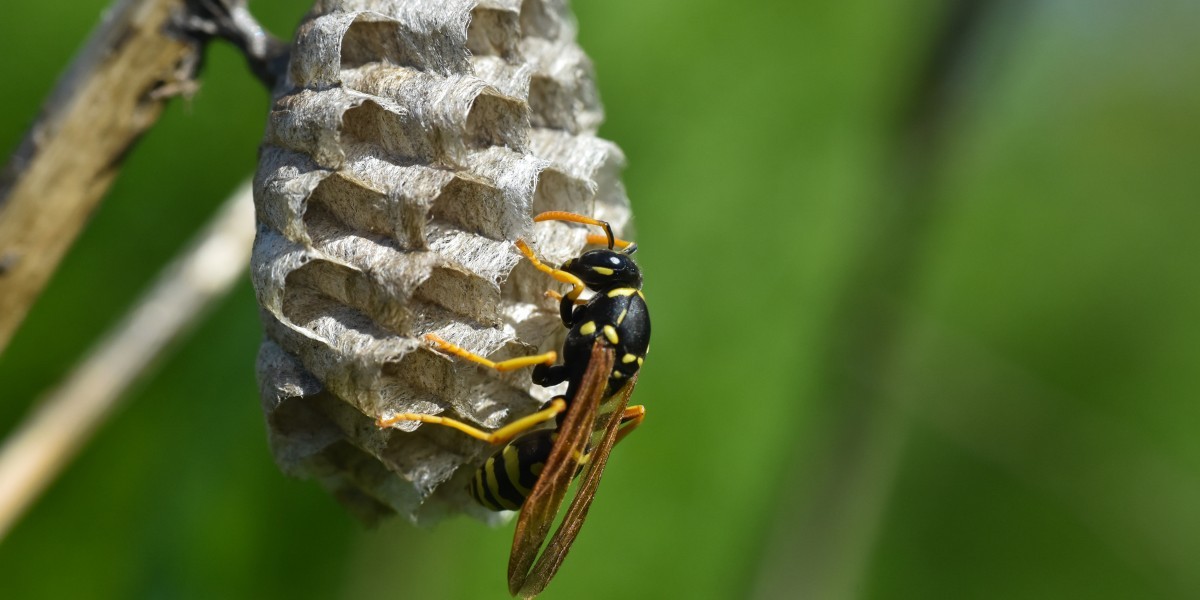As the temperatures in Burnaby drop and the buzz of summer fades, so do the wasps, or so it seems. But have you ever wondered what happens to them? Do they die off completely or just go into hiding? Understanding wasp behavior during the colder months not only satisfies curiosity but also helps homeowners prepare for spring infestations. Many cases of seasonal wasp problems could be avoided with timely prevention and professional wasp control in Burnaby.
In this article, we'll uncover the truth about where wasps go during winter, why you might still find them indoors, and how to protect your property from a resurgence when the weather warms up again.
Do Wasps Die Off in Winter?
The short answer: most do, but not all.
As fall turns into winter, the worker bees and male drones in a colony generally die off due to cold temperatures and lack of food. These members are not built for overwintering. However, queen wasps, having mated during the late summer or early fall, enter a dormant state known as diapause, a type of insect hibernation. These queens are nature’s way of ensuring the survival of the colony and are the only ones to survive until the following spring.
Their hibernation sites are carefully chosen. Queen wasps look for dark, insulated spaces such as:
Attics
Wall voids
Sheds
Tree bark
Roof eaves
In residential areas like Burnaby, homes offer plenty of suitable hiding spots. That’s why it’s not uncommon for homeowners to suddenly spot a wasp or two buzzing around indoors during winter warm spells. These sightings usually mean a queen was disturbed during hibernation.
Why Wasps Are Still a Concern in Cold Weather
Although they’re mostly inactive during the winter, wasps can still pose a risk, especially when they choose to overwinter in your home. A queen wasp tucked into the insulation or behind drywall may go unnoticed for months. However, once temperatures rise even slightly, she may become active again, searching for food or a place to build a new nest.
This is where trouble begins.
By early spring, the queen will emerge and begin laying eggs to start a new colony. Without intervention, what begins as a hidden queen can quickly evolve into a full nest populated by hundreds of stinging insects. That’s why winter is the perfect time to assess and seal possible entry points or contact experts in wasp control in Burnaby to inspect vulnerable areas of your home.
Common Places Wasps Hide in Burnaby Homes
Unlike bees, which tend to remain in hives, wasps are more likely to seek out sheltered, warm spaces that mimic their natural environment. Some of the most common locations include:
Chimneys and vent covers
Gaps in siding or soffits
Behind light fixtures
Inside garden furniture or outdoor grills
Wall cavities and ceiling voids
Residents in Burnaby often deal with wasps returning to the same nesting sites year after year, especially in homes near greenbelts, parks, or wooded areas.
How to Prevent Wasps From Overwintering on Your Property
Prevention is key when it comes to wasps. Once the cold sets in, it’s usually too late to remove queens already in hibernation; disturbing them might even cause them to relocate deeper into the structure.
Here are a few ways to reduce the risk of overwintering wasps:
Seal gaps around windows, vents, doors, and rooflines.
Install a fine mesh over vents and chimneys.
Store wood and garden furniture in sealed sheds or garages.
Check attic and wall insulation for nests during late fall.
Remove old nests (though they won’t be reused, they’re a sign of a good nesting location).
It's also helpful to schedule a seasonal inspection in late summer or early fall to identify and safely remove active nests before queens begin seeking overwintering shelters.
What to Do if You See Wasps Indoors in Winter
If you find a live wasp flying around your Burnaby home in the dead of winter, it’s likely a disturbed queen. While one or two might not seem like a big issue, their presence indicates a potential hibernation site within your home’s structure.
Killing the wasp may stop that individual, but it won’t address the larger issue. Instead, consider:
Inspecting the area for entry points
Monitoring warm spots (like attics or boiler rooms)
Calling a local wasp control service to assess for hidden infestations
Treating the area proactively can help stop a colony from forming in spring.
Why Professional Wasp Control in Burnaby Matters
Burnaby’s changing climate and dense residential zones make it a prime area for seasonal wasp problems. While DIY solutions might work for visible nests in summer, dealing with hidden overwintering queens or early spring colonies requires specialized knowledge and equipment.
A professional pest control technician can:
Identify common nesting or hiding sites
Remove active or dormant nests safely
Use insect growth regulators (IGRs) to prevent colony formation
Apply barrier treatments to keep wasps away in spring and summer
In addition, trained professionals know how to distinguish between species such as yellow jackets, paper wasps, and hornets, each of which has different behaviors and risk levels.
Final Thoughts
So, what happens to wasps in winter? Most die off, but the queens survive by hiding in protected areas, often inside or around homes. By the time spring returns, these queens emerge ready to build new colonies, which can turn into serious infestations if not managed early.
If you're in Burnaby and want to stay ahead of seasonal wasp problems, now is the time to act. Whether it’s inspecting vulnerable entry points, removing early nests, or dealing with winter invaders, calling in expert wasp control in Burnaby can help keep your home protected year-round.






